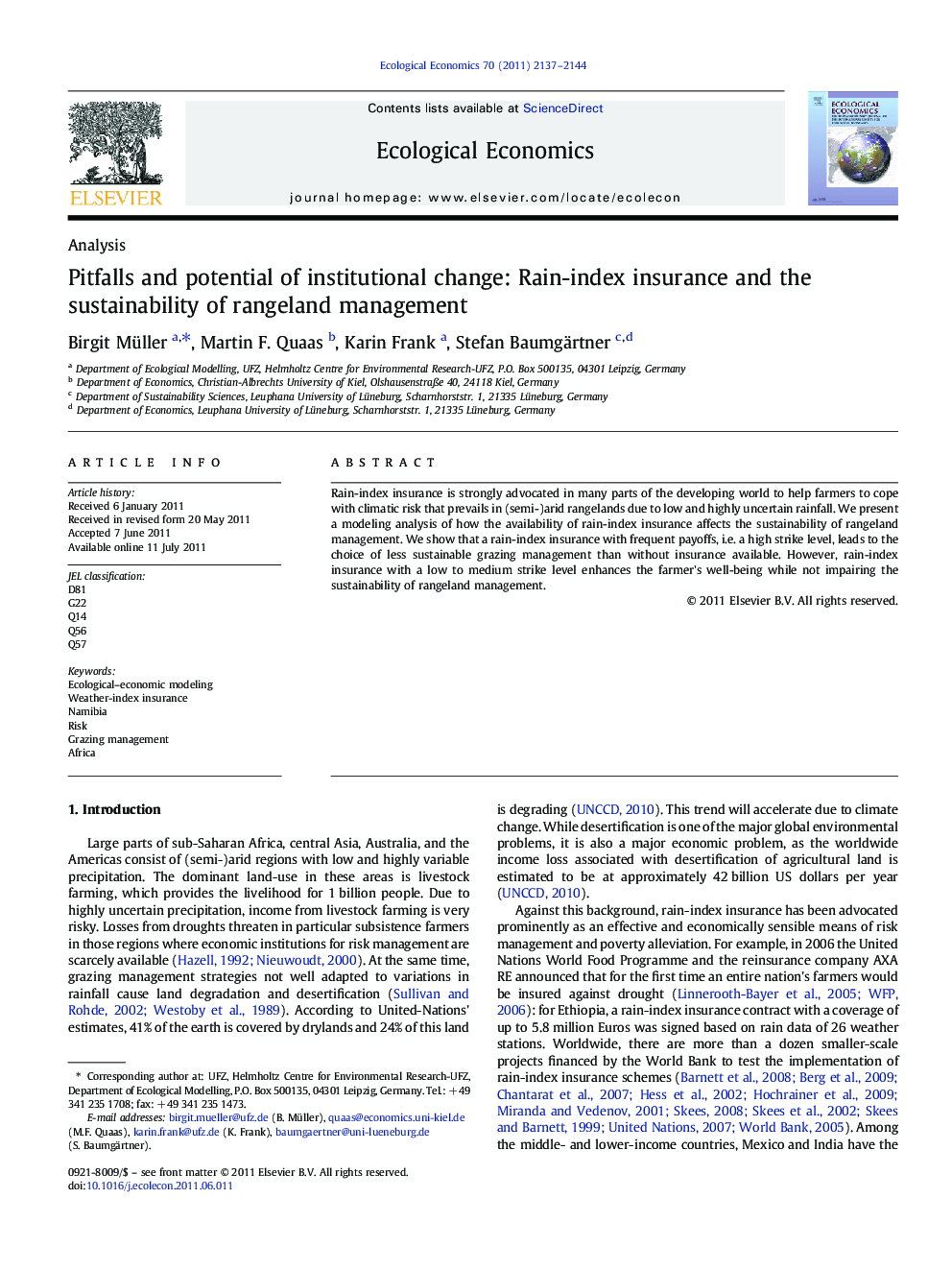| Article ID | Journal | Published Year | Pages | File Type |
|---|---|---|---|---|
| 5050580 | Ecological Economics | 2011 | 8 Pages |
Rain-index insurance is strongly advocated in many parts of the developing world to help farmers to cope with climatic risk that prevails in (semi-)arid rangelands due to low and highly uncertain rainfall. We present a modeling analysis of how the availability of rain-index insurance affects the sustainability of rangeland management. We show that a rain-index insurance with frequent payoffs, i.e. a high strike level, leads to the choice of less sustainable grazing management than without insurance available. However, rain-index insurance with a low to medium strike level enhances the farmer's well-being while not impairing the sustainability of rangeland management.
Research Highlights⺠We study natural and financial insurance against climate risks in rangelands. ⺠We analyze a dynamic and stochastic coupled ecological-economic model. ⺠Resting in rainy years acts as natural insurance for managing climate risk. ⺠Introducing rain-index insurance can have adverse effects on sustainability. ⺠Adequate insurance design - a low strike level - may reduce negative effects.
